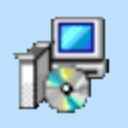

If the user wishes to capture all program output to a text file, for example, the arguments: > output.txtĬould be added to this box. Alternatively, redirection operators can be used. These arguments may be commmand line arguments that the program will process internally. This box provides the user a way to specify arguments that should be passed to the executable when launched. Specifying an executable manually allows for this use case. However, if developing a shared library, the user may wish to launch an executable using this shared library while working within Simply Fortran. For executable projects, the command is fixed to the project’s target name, as explained above. The executable field specifies the command to execute when launching the project.

The launch panel allows the configuration of how the project will be executed from within Simply Fortran. Static LibraryĪ static library, which often ends in the suffixes lib or a, can be compiled into another library or executable. Shared Libraryīuilding a shared library will generate a shared object from the project sources. Selecting this option instructs the compiler to create an executable as its product. The target name is generated within the project’s base directory unless a relative path is specified. The target name specifies the final product of the build process. Simply Fortran supports three basic target types: executables, shared libraries, and static libraries. The target options specify the project’s final build product. This first panel allows users to change common project options. Each panel in the project options dialog is described below: General This window is project-specific, meaning different values will be present for different projects.

The Project Options window configures most aspects of a given project with the exception of the files to be included. Purchasing and Activating Simply Fortran.


 0 kommentar(er)
0 kommentar(er)
